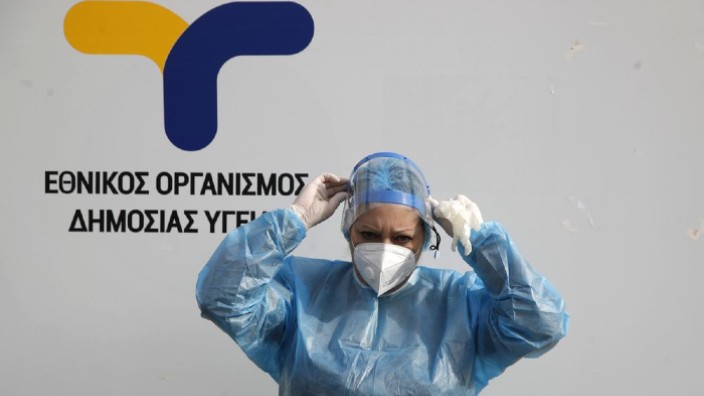Four cases of the fast-spreading COVID-19 variant, first identified in the UK, have been diagnosed in Greece, according to reports by Greek news networks SKAI and ANT1.
Since its discovery in the UK in November, the coronavirus mutation has been diagnosed in dozens of countries across the globe.
In Cyprus, a total of 12 cases of the mutation were found, after the country conducted further tests on samples taken from people who had travelled from the UK and tested positive for COVID-19.

The variant is causing concern around the world because it spreads faster than novel coronavirus, although it’s not necessarily more deadly.
Lockdown extended in Greece:
This news comes as the Greek government announced on Saturday a one-week closure of all retail shops which were allowed to open during the holidays, as well as the closure of all places of worship.
Government spokesman, Stelios Petsas, said the decision was taken by Prime Minister, Kyriakos Mitsotakis, and the government to avert a spike in the viral load so schools of all levels can reopen on January 11.

At the same time, Petsas said that the nightly curfew will return to 9 pm to 5 am for one week. People working night shifts are exempt from the curfew, but need to be able to show a pass from their employers if stopped during a police check.
These measures apply as of Sunday, January 3, starting at 6 am, until 6 am on Monday, January 11.
Retailers and churches will be allowed to reopen along with schools on January 11, with the same health and social distancing rules that applied before the holidays, Petsas added.
